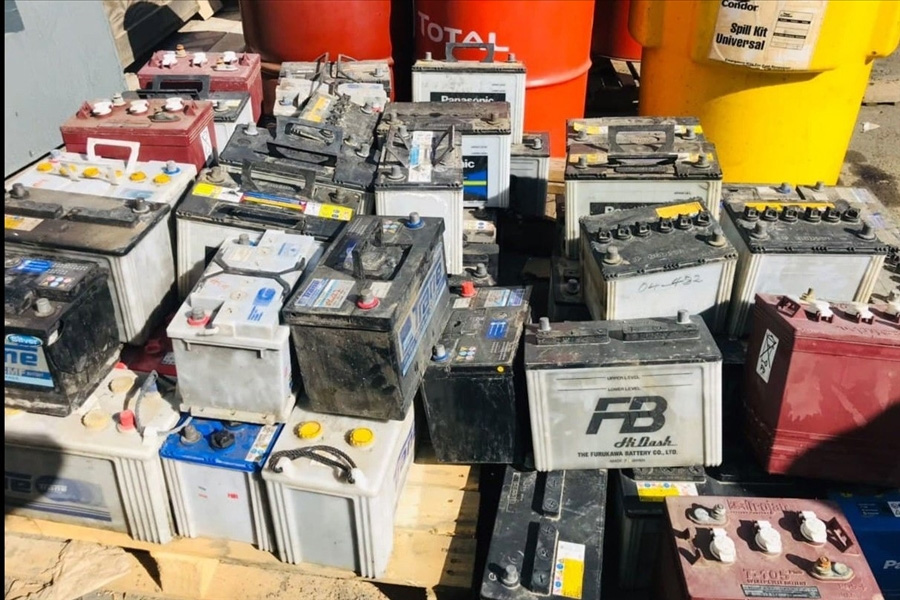
Radar | Jul 27,2025
Frequent power outages disrupt daily life and hinder economic activities across the country and Addis Abeba, as residents and businesses struggle with an unreliable electricity supply. The persistent energy crisis has turned routine tasks into daily challenges, with simple activities like cooking becoming ordeals due to unexpected blackouts. The Ethiopian Electric Utility (EEU), the sole electricity distributor, acknowledged the widespread outages but blamed unbalanced consumption and outdated infrastructure as the primary culprits. According to its officials, the proliferation of electricity-intensive businesses operating within residential condominiums has overloaded transformers that are not designed to handle such demand.
A recent EEU study examining 881 medium-voltage lines revealed that power blackouts average 46 hours. Earth faults, often caused by landslides, account for nearly 47pc of these outages. Short circuits, operational problems, and overcurrent issues further contribute to outages. The EEU accepts responsibility for 88pc of the blackouts, with the remaining attributed to Ethiopian Electric Power (EEP), the state-owned company responsible for power generation. Small businesses are bearing the brunt of the crisis. Bakers, vital to the local food supply, face halted operations and strained customer relations due to unreliable electricity. Larger institutions are not spared either. The IT Park near Goro relies heavily on diesel generators to maintain operations, a costly and unsustainable solution. Despite slight improvements, management anticipates that a long-term fix will require substantial investment, including a planned 50 million dollars on-site substation.
Experts argue that the heart of the problem lies in the outdated infrastructure. They urged authorities to prioritise rebuilding energy distribution systems and promote energy-efficient practices in buildings. With nearly half of Ethiopia's population lacking reliable electricity and frequent outages plaguing those connected, the need for systemic solutions is increasingly urgent. The EEU's acknowledgement of the issues could have come as a step toward addressing the crisis, but residents remain sceptical about immediate improvements. As the capital struggles with power reliability, individuals and businesses are left searching for alternative solutions to overcome the daily uncertainties. SEE
You can read the full story here
PUBLISHED ON
Nov 09,2024 [ VOL
25 , NO
1280]

Radar | Jul 27,2025

Fortune News | Dec 15,2024

In-Picture | Jun 29,2025

Fortune News | Jun 29,2025

Sponsored Contents | May 22,2023

Radar | Sep 14,2024

Radar | Sep 07,2025

Fortune News | Jan 13,2024

Radar | Sep 05,2022

Fortune News | Aug 17,2025

Dec 22 , 2024 . By TIZITA SHEWAFERAW
Charged with transforming colossal state-owned enterprises into modern and competitiv...

Aug 18 , 2024 . By AKSAH ITALO
Although predictable Yonas Zerihun's job in the ride-hailing service is not immune to...

Jul 28 , 2024 . By TIZITA SHEWAFERAW
Unhabitual, perhaps too many, Samuel Gebreyohannes, 38, used to occasionally enjoy a couple of beers at breakfast. However, he recently swit...

Jul 13 , 2024 . By AKSAH ITALO
Investors who rely on tractors, trucks, and field vehicles for commuting, transporting commodities, and f...

Oct 11 , 2025
Ladislas Farago, a roving Associated Press (AP) correspondent, arrived in Ethiopia in...

Oct 4 , 2025
Eyob Tekalegn (PhD) had been in the Governor's chair for only weeks when, on Septembe...

Sep 27 , 2025
Four years into an experiment with “shock therapy” in education, the national moo...

Sep 20 , 2025
Getachew Reda's return to the national stage was always going to stir attention. Once...